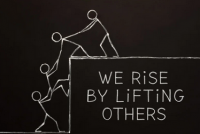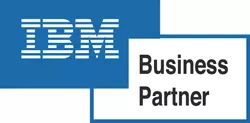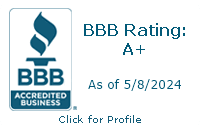 Ten months ago, I wrote an article sharing how various people in our community were stepping up to support agencies serving our neighbors during the initial shocks of COVID-19. Since then, we have made significant progress in battling the pandemic, yet our neighbors still need help – albeit in different forms – and people and agencies continue to step up to meet the changing needs.
Ten months ago, I wrote an article sharing how various people in our community were stepping up to support agencies serving our neighbors during the initial shocks of COVID-19. Since then, we have made significant progress in battling the pandemic, yet our neighbors still need help – albeit in different forms – and people and agencies continue to step up to meet the changing needs.
Friday Breakfast – Volunteers Are Returning!
With vaccination rates fairly high in Guilford County, I began discussing how the Friday Breakfast team could resume its pre-COVID routines with my Co-Founder and Co-Leader Andrew Chamberlin and Greensboro Urban Ministry (GUM) Director of Emergency Assistance Tyra Clymer. We have begun inviting back volunteers who stayed home much of the past year. As people return, we're updating them on changes at GUM – including its space issues – and how the Friday Breakfast group is gearing back up to resume making bag lunches, a labor-intensive task that was dropped when we had to limit ourselves to 7 or 8 volunteers.
GUM – Shelter Census Remains Low for Now
Even though the latest CDC guidance largely eliminated mask recommendations for fully vaccinated individuals, neither the CDC nor the NC Department of Health and Human Services (NCDHHS) has issued guidance for shelters such as GUM.
GUM's Weaver House shelter for single adults is now operating at about half the normal capacity, while its Pathways Family Shelter is full. The reason for the difference? Weaver House has few interior walls and beds are close together, while each family has its own private living space – including beds, kitchenette, and a bathroom – at Pathways.
Various funding sources have allowed persons who would normally spend the night at GUM to be placed in hotels. Initially, this was a "win-win" for both the GUM clients and the hotels, whose occupancy hit record lows. Now, with travel increasing, hotel occupancy rates are higher, so it is uncertain how much longer GUM clients can be housed in hotels.
This is just one instance of how needs and options have evolved over the past 10 months.
GUM – Emergency Assistance Needs Have Evolved
As I shared last year, Emergency Assistance (EA) at GUM has 3 components:
- Housing
- Utilities
- Grocery
I recently spoke with Chip Berry, Development Director at GUM, about how things currently stand with the EA programs, and he shared the following updates.
Housing and Utilities EA needs have exploded. Prior to COVID, GUM provided about $4,000 a month, or around $50,000 a year, in Housing and Utilities EA. Over the past year, GUM has provided over $1.1 million to meet the increased needs. Until last month, no public funds have been used for this – rather, initial large donations were quickly made by the United Way of Greater Greensboro and the Community Foundation of Greater Greensboro, followed by an outpouring of support from individuals and companies in the community.
Public funding began to be used in April, with funds coming from two major sources.
- The Federal budget included in the Consolidated Appropriations Act (CAA) passed in December 2020 contained $25 billion to help local governments provide rent assistance through the Emergency Rental Assistance Program (ERAP). The City of Greensboro received $9 million from these funds, and is working through GUM, the Salvation Army, and the Greensboro Housing Coalition to vet needs and distribute funds.
- Additional funding for ERAP is coming from the American Rescue Plan (ARP) signed into law in 2021. Greensboro will receive $7 million from the ARP, and will rely on the same 3 agencies to identify needs and distribute funds.
The boom in the local real estate market has been good for sellers – and also provided landlords with increased incentive to evict tenants so they can sell their properties while the market is hot. Currently, moratoriums on evictions are based on public health guidance from the Centers for Disease Control (CDC). This guidance is set to expire on June 30, 2021 (unless extended) and contains loopholes to allow evictions. Indeed, the courts are now processing eviction orders. Funding from the Federal government, funneled through the City of Greensboro, can only be used if the eviction is COVID-related – if not, GUM will use its own funds or seek funds from faith-based organizations to try to stave off eviction.
Moratoriums on utility disconnects have ended, and both Duke Energy and Piedmont Natural Gas are now disconnecting customers. Unlike evictions, utility disconnects do not require a court order. Fortunately, GUM receives funding from the Duke Energy Foundation and from utility customers who elect to make contributions to the "Share the Warmth" program, and then uses these funds to help pay delinquent utility bills.
Grocery EA has also exploded. Prior to the pandemic, GUM only allowed clients to receive groceries from its food pantry 5 times per year. Now, grocery assistance is allowed once a week – and more frequently, if needed.
Despite 3 major 2020 food drives – GUM's own spring and fall Community Food Drives, and the letter carriers' Stamp Out Hunger Food Drive – being canceled, the community stepped up its food donations. Donations to GUM's Food Pantry are up over 25% from a year ago!
I can personally attest to the consistently high generosity of food donations – every Friday morning for the last year, the walk-in refrigerator and the food warehouse have been overflowing, causing GUM to repurpose sections of its building to store donated food.
GUM – Participants Push to Re-Open Events
Once restrictions were placed on large gatherings in 2020, GUM converted all but one of its in-person events to virtual events. These events can take six or more months to plan, and a decision whether to hold the May 2021 "Serving Greensboro Together" event had to be made in February 2021. This is the annual event where participating restaurants donate 10% of their sales on a particular day to GUM. Even though GUM staff were in favor of canceling the event because of uncertainty about where vaccinations and restrictions would be in 3 months, the restaurant owners and managers INSISTED the event go on!
Eventually, 74 restaurants participated in this event. I was especially impressed by the restaurants' literal "leap of faith" because the industry was not doing well in February and had little reason to expect May to be much better. Still, they took this leap because the event was a tradition that meant a lot to them and to the community – a very generous act of putting others first.
Greensboro's History of Generosity
The restaurants' generosity at a time when both capacity and sales are still below pre-COVID levels is an excellent example of the history of generosity in Greensboro's DNA.
Taking personal risks to help others dates back to at least the 1860's when the Underground Railroad ran through Greensboro because of the Quaker's commitment to abolishing slavery. Sharing one's wealth has been a point of pride for Greensboro's civic leaders dating back to at least the early 1900's, when fortunes were already being made in Vicks products, denim for Levi Strauss & Co., and insurance. Fortunately, these individuals and families put their values into action by reinvesting their wealth in our community.
"Grateful for Taxes"
A recent episode of NPR's short and excellent economy-focused podcast, "The Indicator from Planet Money," traced a form of taxes back to ancient Athens in the 5th and 4th centuries B.C.E. Grateful for Taxes describes various ways Athens paid for its public services. One of the biggest expenses? Defense from its enemies. Unlike in the United States today, only the very richest Athenians paid for the city's defense. They were expected to "pay the entire cost of provisioning, paying the wages, and equipping one of these high-tech warships called a trireme for an entire year." Furthermore:
[T]he Athenians had a special word for it. And this is, I think, the key to understanding how they thought about this system. It was called a liturgy, which literally means, work for the people, a public service.
I prefer the original meaning of liturgy in both religious and civic contexts because it helps congregants and citizens understand that volunteerism and taxes serve the common good – and reflect ecumenical values – by helping people in need.
Read back over the preceding sections and imagine what our national, state, and local communities would be like now, were it not for tax-supported programs to rapidly develop and distribute vaccinations and to financially support individuals, businesses, and state and local governments impacted by the shutdowns essential to curbing the spread of COVID-19.
Grateful for Generosity
The restaurants in 2021 and countless other individuals and groups – including my friends at Friday Breakfast – are chapters in Greensboro's long history of generosity. Like the ancient Athenians, I'm sure everyone who pitched in to help out in 2020 and 2021 has an inner sense of quiet satisfaction that comes from helping others.
Let's all be grateful for acts of generosity, no matter the size, because generosity is truly the work of the people, for the benefit of all the people.
Sincerely yours,
![]()
Todd L. Herman
Ways You Can Help
I write about GUM because it is the agency I know best – still, there are other agencies working to help people in need. What can you do?
- Learn How to Refer Persons in Need to Appropriate Resources – Here are some links to GUM and the City of Greensboro web sites on help currently available, along with a general suggestion:
- GUM and Emergency Assistance Programs
- GUM and Emergency Rental Assistance Program for Rent and Utilities
- City of Greensboro and Emergency Rental Assistance Program and Utilities
- For other agencies, if you know an agency does provide some forms of help, yet cannot find an appropriate web page with updated information, call the agency's main number, ask for Emergency Assistance, and find out about available programs and how to make a referral.
- Support Your Faith Community in Its Efforts to Help Those in Need – Pastors, priests, rabbis, imams, and other leaders and staff of congregations generally know about needs in the congregation and in the area around the facility. Your congregation likely has funds such as:
- Member Assistance Fund – This money helps people in the congregation.
- Community Assistance Fund – This money helps people outside the congregation.
- Help GUM and Other Agencies – Check their web sites for ways to:
- Donate food or money
- Organize a food drive
- Volunteer to help, either as an individual or as a group
- Provide other support
- Consider Ways to Put Your Values Into Action – Here are special COVID-19 resources from two ecumenical organizations focused on advocacy for food, housing, and other basic needs:






